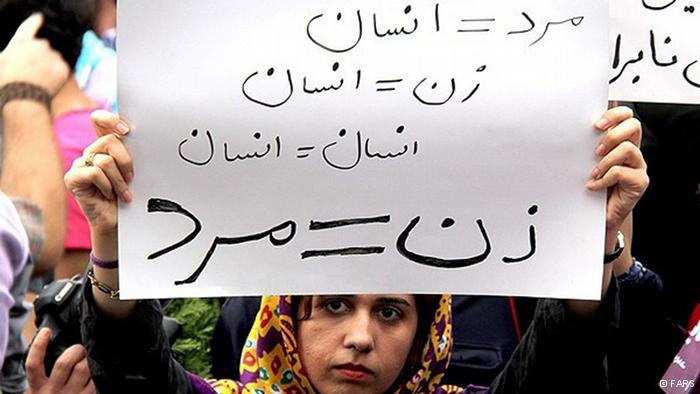
Those who should not judge in Iran / Maryam Babaei
Article 163 of the Constitution has the title: “Qualifications and Conditions of a Judge According to Islamic Standards Determined by a Specific Law.” Women in Iran are prohibited from holding the position of judge according to this article and with the consensus of Shia jurists. The main reason for the consensus of Shia jurists on this prohibition is verse 34 of Surah An-Nisa (1). Prohibition of judging for women in Iran means prohibition from making final decisions in a case and issuing a verdict or judgment.
Women have been employed in the development of the judicial system in Iran in the past thirty-six years, both after the dissolution of courts and in the positions of advisory judges and enforcement judges, and after the revival of courts in the positions of court clerks, investigators, and advisory judges. However, the number of women employed in these positions, which is not legally prohibited, is very small compared to men. The highest judicial positions that women have achieved in the past thirty-six years include the head of the Tehran Martyrs Judicial Complex (Juvenile Court) and a consultant for the Supreme Court and Administrative Court, but their numbers do not exceed the fingers of two hands.
The analysis of the reason for this prohibition and the opposing argument is beyond the scope of this writing. What is certain is that whenever a person is prevented from taking on a job solely because of their gender, despite having the necessary scientific and practical abilities, it is a form of gender discrimination and a violation of the Universal Declaration of Human Rights. Since Iranian women do not have an inherent or genetic deficiency in acquiring scientific and practical abilities, the prohibition of their employment in the judiciary is another clear example of gender discrimination against them.
Answering the question of how much this discrimination affects the spirit of educated women in the field of law and beyond, what impact it has on the lives of women in society, takes me back to my college years; when with a thousand hopes and dreams, I passed through the barriers of entrance exams and the hidden and obvious gender quotas, and entered the law school. The first discrimination I faced was the veil room, where male students were exempt from entering. The second step was the segregated public spaces, such as the cafeteria, dining hall, and even the prayer room, where less space and smaller areas were allocated for women. Although from 1976 until now, the number of female students admitted each year has been higher than male students. The next forms of discrimination and belittlement come in the face of laws themselves: topics such as dowry, inheritance, testimony of women, and the most discriminatory of all, family law. Faced with all this discrimination, when I remember that one
Regarding the negative effects of this discrimination on society, we must first see if gender discrimination is the only form of discrimination in the selection of judges. The answer is no; non-Muslim citizens are also not allowed to become judges in Iran, despite meeting all other qualifications. In addition to gender and religious discrimination, the most important form of discrimination in the acceptance and recruitment of judges in Iran is ideological discrimination, also known as “selection”. While it is never mentioned in the job postings for judicial exams by the judiciary, religious and ideological background is the main factor in selecting judges, taking into account their personal backgrounds and lives. For example, one of the university professors in Hamedan, who was accepted in the judicial exam in the 1980s due to his religious beliefs, was rejected in the “selection” stage because of his relationship with a veiled university student, which did not lead to marriage. Since this “selection” is not based on a specific formula and can vary depending on political
Even without the prohibition of judging for women, a female judge who herself has a patriarchal mindset cannot have a positive impact on the social conditions of women or prevent the violation of their rights. Let’s set aside the assumption of ideological selection and imagine a female human rights lawyer sitting on the judge’s seat in current conditions in Iran, we cannot expect her to issue non-discriminatory judgments. We must not forget that this lady judge still needs her husband’s permission to leave the country. If a woman without a physical excuse prevents cohabitation with her husband, the lady judge is forced to issue a ruling for the obligation of reconciliation towards that woman.
I do not want to completely ignore the impact of women’s presence in the judicial system, but I believe that in all social institutions where individuals of both genders are active, it is much more reasonable, balanced, and productive than single-gender environments. However, simply removing the ban on women from the judiciary without changing and modifying laws and also the anti-women attitudes prevalent in the judicial system will not bring about positive change; on the contrary, it may lead to the use of propaganda by the government and the presentation of a more moderate image than reality in international forums, and it may also result in ignoring other demands for women’s rights in Iranian society.
In conclusion, I emphasize that due to the current social and legal conditions, the lack of judicial rights, for example, the lack of the right to divorce, has a much lesser impact on the daily lives of women. This is not a reason to consider this issue as less important. The prohibition of Iranian women from judgment should be eliminated, just like other forms of discriminatory laws.
Mary Babaei
Judicial attorney
Postscript
“Men are in charge of women by [right of] what Allah has given one over the other and what they spend [for maintenance] from their wealth. So righteous women are devoutly obedient, guarding in [the husband’s] absence what Allah would have them guard. But those [wives] from whom you fear arrogance – [first] advise them; [then if they persist], forsake them in bed; and [finally], strike them. But if they obey you [once more], seek no means against them. Indeed, Allah is ever Exalted and Grand.”
Men are the caretakers of women because God has given some of them superiority over others and also because they spend from their wealth. So, righteous women are obedient and guard the secrets of their husbands that God has entrusted them with. And for women whom you fear disobedience, first advise them and then separate from them in bed and if that doesn’t work, then strike them. But if they obey you, do not seek a way against them, for God is Most High and Great.
It is necessary to mention that during my eight years of practicing law in the years 1384 to 1391, I had direct interactions with over two hundred judges from criminal and civil branches, and also had the opportunity to review cases with honorable and respectful judges. Despite all the limitations mentioned, they treated litigants and attorneys with utmost respect and fairness in their judgments. Unfortunately, in my personal experience, only about ten percent of these individuals were truly impartial, and I hope that my colleagues have had a better statistical experience.
 Created By: Maryam Babaei
Created By: Maryam BabaeiTags
Equal for gender Equal opportunity Gender discrimination 2 Mary Babaei Peace Line 43 Peace Line Magazine Issue 43 Peace Treaty Number Azar Month Women judges